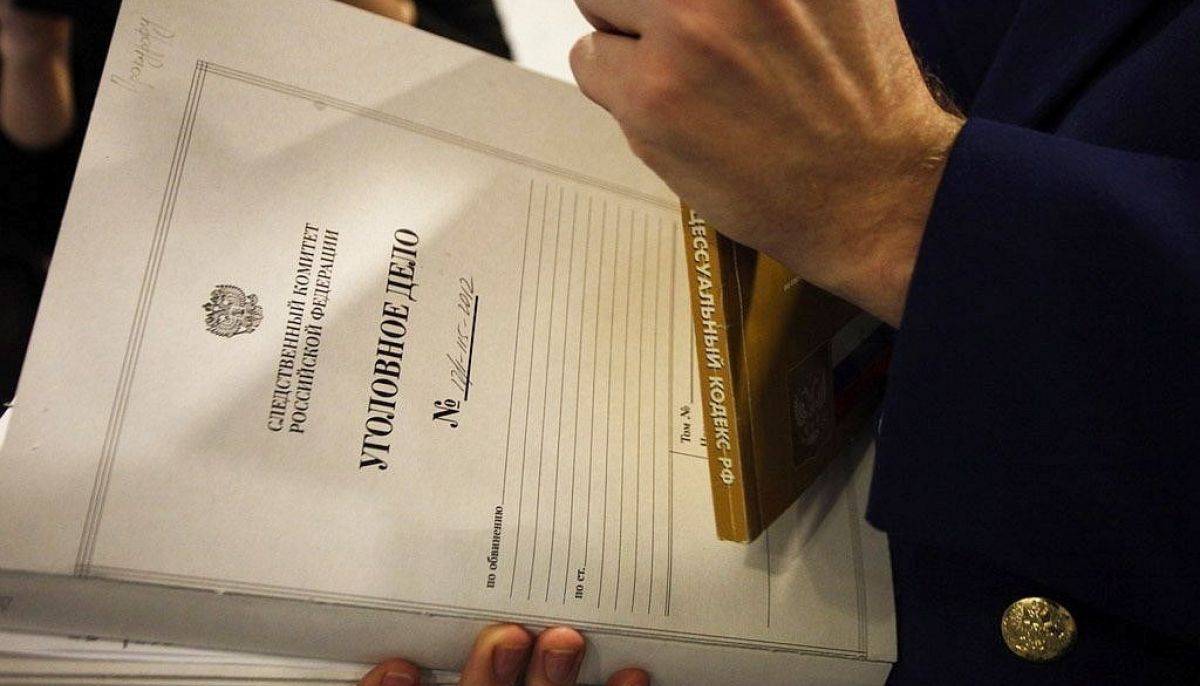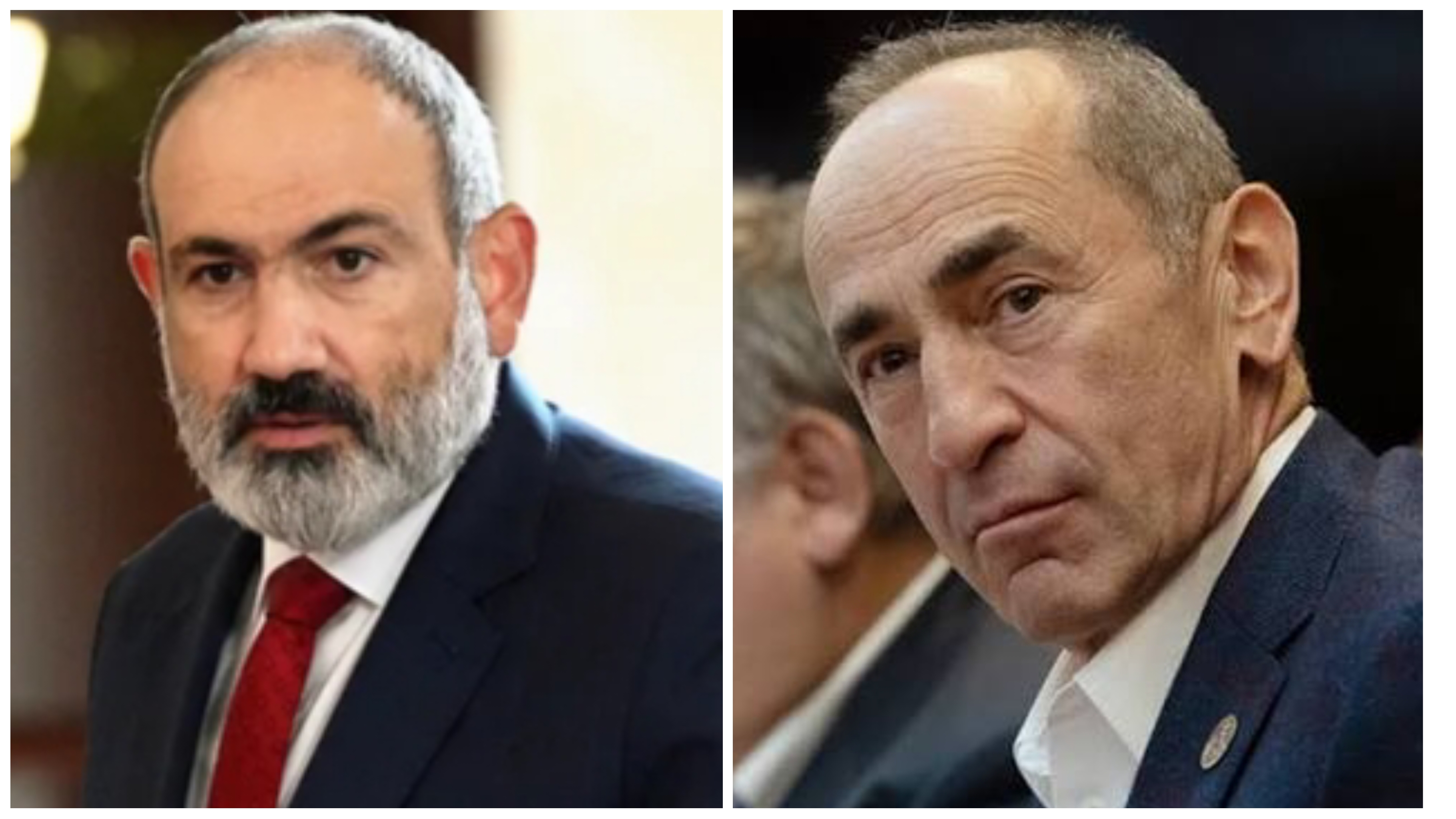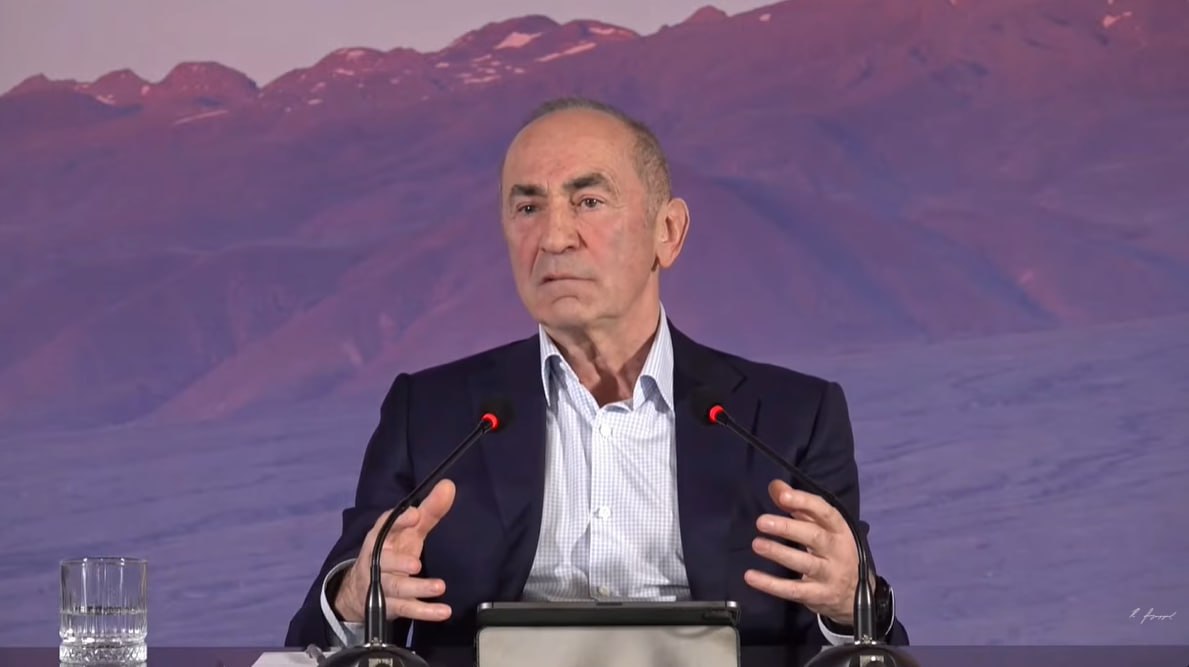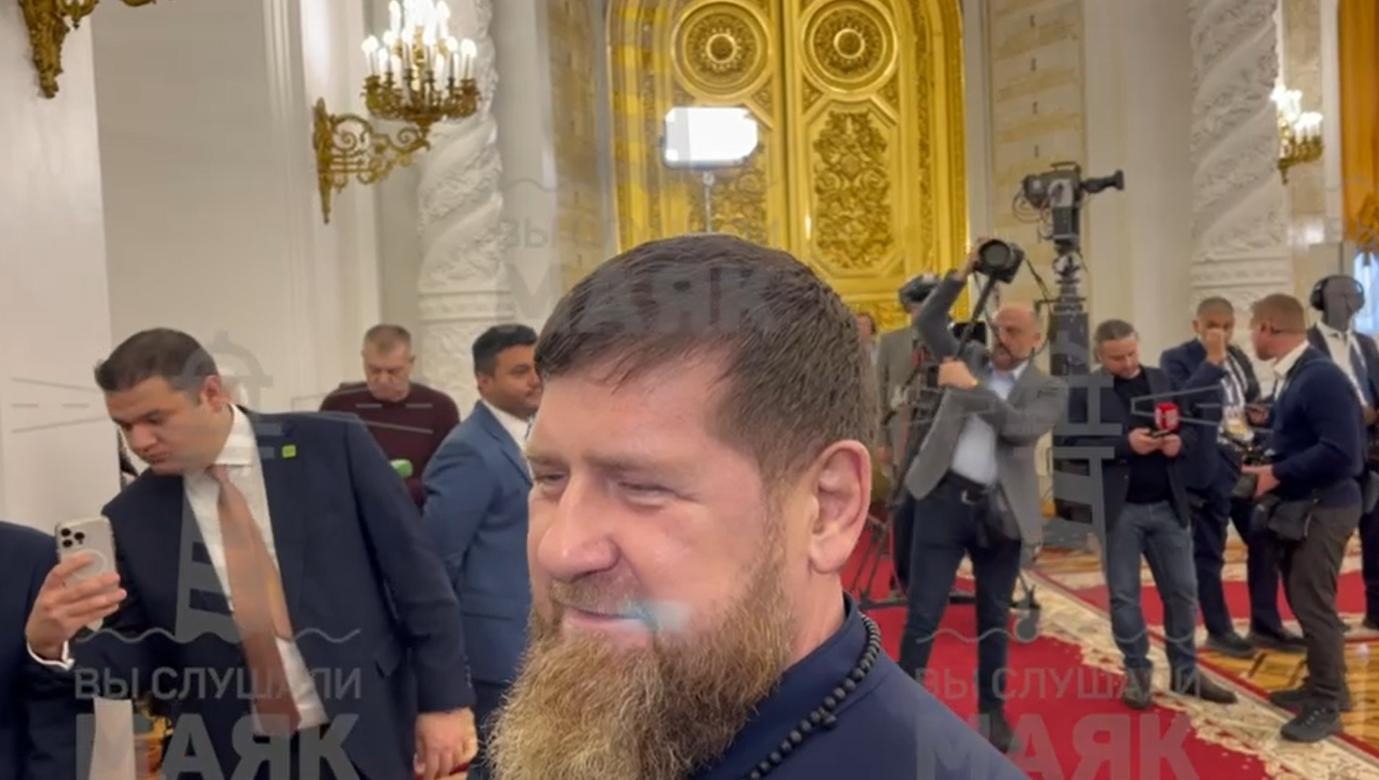A second administrative case has been opened in Chechnya in Russia for searching for "extremist materials" online. The case was registered by the Naursky District Court, and local resident Isa Magomadov is listed as the offender.

July 1, 2001
***
At the beginning of July, Memorial Human Rights Center received the “Appeal to the State Duma of the Russian Federation of forced migrants from Chechnya who are in Ingushetia”:
“Dear deputies of the State Duma of the Russian Federation, we appeal to you with the hope that the Duma will finally intervene in the difficult situation that is unfolding around us, refugees from Chechnya. Recently, the new administration of the Chechen Republic has set as its goal the return of all refugees back to Chechnya. This also coincides with our ultimate desire. However, we want to return to Chechnya to live and not be killed. We do not even ask for good living conditions, because we do not expect it. We demand a minimum: security guarantees, which are absolutely absent on the territory of the Chechen Republic at this stage. We cannot voluntarily return to a territory where “cleansing operations” are regularly carried out, during which people are illegally arrested, and these people often go missing or their corpses are found mutilated, where those arrested are systematically beaten and brutally tortured. We cannot return to a place where soldiers and riot police come to the house in armored personnel carriers, break in, capture people, take away their last property from the unfortunate residents. We do not want to again fall under shelling, which is constantly taking place in all regions of the republic. In 1999, we were forcibly expelled from the republic with bombs and shells, and now they are forcibly driven back under shelling, into conditions where the law does not apply, where human rights are not respected and civilians do not have any legal protection.
Instead of stopping robbery and banditry on the part of law enforcement agencies directed against the civilian population, and thus creating conditions for the voluntary return of refugees home, state officials use the method of forcibly squeezing refugees out by creating unbearable conditions in Ingushetia, similar to those that exist today. time in Chechnya. For the purpose of blackmail and intimidation, passport checks are carried out, the same as “cleansings” in Chechnya: for example, “cleansings” in the camp in the village of Aki-Yurt and in the Sputnik camp with arrests for which there are no factual grounds. Against the backdrop of such a picture, General Troshev's threatening statements about the conduct of "cleansing operations" throughout the territory of Ingushetia are heard. In this way, a climate of tension is created among the refugees, and we live in constant fear in anticipation of the execution of these threats.
Other methods are used to squeeze out refugees from Ingushetia. For example, the Migration Service of the Russian Federation in Ingushetia during the month of May stopped the distribution of bread and hot meals in the camps, and the Russian government, by its Decree No. 163 of March 3, 2001, forced international humanitarian organizations to suspend the provision of humanitarian assistance in refugee camps. The dry rations provided by the migration service are far from sufficient for proper nutrition, especially since not everyone has the opportunity to cook food: either there is no gas, or there is no firewood.
The situation of refugees in the private sector is deteriorating day by day. People do not have the means to pay rent, and apartment owners cannot receive refugees for free, since the Russian government does not pay for their utilities for refugees (electricity, water).
For several months now, the migration service has stopped registering refugees. For this reason, people who are still forced to leave Chechnya because of the constant danger to their lives cannot receive tents in camps and humanitarian assistance either from the migration service of Ingushetia, or from the Ministry of Emergency Situations, or from other humanitarian organizations. These people often roam the camps in search of lodging for the night.
Based on their political goals, officials at various levels are trying to "squeeze out" us refugees into a zone of lawlessness, where every minute threatens a person with death or capture. "Agitators" who come from Chechnya promise us all sorts of benefits in the form of monetary compensation and other handouts. However, these irresponsible officials do not want to think about guarantees of life safety, about observance of elementary human rights. Several dozens of internally displaced persons, who, having succumbed to persuasion, recently returned to the city of Argun, on the same day ended up in a zone of combat skirmishes. And those unfortunates who could not leave the republic and live in remote villages of the republic are in a distressed state. They are practically starving. Local state structures in Chechnya are not yet able to solve internal social issues, especially since they will never be able to cope with the problems of refugees who have returned from Ingushetia. And in this situation, the Minister for Chechen Affairs, Vladimir Yelagin, declares the need to return all refugees from Ingushetia to Chechnya this summer. None of the officials wants to reckon with our opinion, with our unwillingness to return to lawlessness in Chechnya.
We did not leave Chechnya voluntarily, and now we ask you not to push us by force to where the arbitrariness of the military reigns, where there is no protection for a peaceful person from any of the warring parties. We really want to return home and will return of our own free will, but only when there is peace and order. We ask you not to allow the fate of refugees to be manipulated. We urge you to fulfill your parliamentary duty and raise the issue of the situation with internally displaced persons for discussion by the State Duma.”
Under the appeal is the date - June 22, 2001, followed by hundreds of names of the signatories.
***
The HRC "Memorial" continued to receive more and more new details of the cleansing operation that ended the day before in the village of Chernoreche. The fact that it will take place, local residents became aware in advance. Therefore, all those who had reason to fear for their safety left the village. Having paid money at the post, it was possible to leave directly and on the days of the operation.
The military began to take people away on the morning of June 29. Mostly men over 18 years of age. They also brought teenagers aged 14 and younger to the dispensary building on the banks of the Grozny reservoir. In total, according to updated data, up to 300 people were detained. There they were laid face down on the ground and beaten. The son of Umalt Elderbiev, according to eyewitnesses, was injected with an unknown drug under the shoulder blade. After his release, he was taken to a hospital outside the city in serious condition.
Most of the detainees were interrogated. To do this, they were taken one by one to the building of the dispensary, where they asked questions in Russian about the militants and Wahhabis. Torture was used, including electric shock. Those people did not see who interrogated them: even during the arrest, shirts and plastic bags were pulled over their heads.
Employees of the HRC "Memorial" clarified the circumstances of the detention of Elina Gabayeva, a nurse at the children's hospital located in Chernorechye. In the morning, as always, she arrived in the village (Elina is married and lives in another part of the city) and before going to work, she decided to visit her mother.
Putting on a white coat, Elina Gabaeva was about to go outside when she saw through the window the military men running towards their entrance. They jumped into the apartment, where at that time, besides herself, her mother and four sisters were. The youngest of them was only two years old, the other eight years old. The latter went into hysterics at the sight of the military. The mother asked permission to take her out of the apartment. In a rude and cheeky manner, this was denied. Hearing screams, a neighbor broke into the apartment and took the girl to her.
The military demanded documents from those present and, having looked at them, ordered Elina Gabaeva to take off her dressing gown. To the question "why?", They answered: "You are coming with us." They did not return the passport to the girl, they left it with them.
She was taken out of the entrance and put into a UAZ car. The mother also sat down there, not wanting to leave her daughter alone with the military. But they were separated at the building of the dispensary: the daughter was thrown out of the car and taken somewhere, and the mother was taken back to the village and left at the entrance to the dam of the Chernorechensky reservoir. Through yards and lanes, bypassing military pickets and clusters of armored vehicles, she returned to the dispensary after a short time. There was already a large group of women there. They protested about the detention during the "cleansing" of their relatives. The military tried to drive them away, shot at their feet and threw smoke bombs. However, this inflamed the women even more, and soon a rally actually began here.
Elina Gabaeva: “I was in my third month of pregnancy. The day before these events, I left the hospital. They let me out of the car and rudely took me to the Ural. There were many soldiers there. They began to ask: “Where did you go to do dressings? Where do militants live?
I said that I didn’t know anything, then they began to threaten me: “We will hang you like Pinocchio.” At the same time, they sent some soldier to find a tree in order to hang me. But then it turned out that the employees of the hospital where I work ran to the dispensary and told the military that I had just left the hospital, that I was pregnant. They were told that they had their own gynecologists, so don't worry. I didn't know all this, of course. After some time, two drunken hulks entered the Ural and, brazenly declaring that they were gynecologists, began to insult me. I got very scared and started crying. Fortunately for me, they were distracted by the detention of some more important person. They all jumped out of the car, leaving me with some two soldiers. Then they came in again and rudely, swearing obscenely, began to pester everyone with the same questions. This went on several times.
After a while, they took me outside and put me on my haunches near some bushes. We were forced to sit like this until 20.00 in the evening. They surrounded me and again tortured me with threats and questions.
In the evening, having written down the data and forcing them to sign under them, they released me. Before that, they warned that they would follow my every step: where I go, who I communicate with, etc. The next day in the hospital, I lost my baby.”
A woman picketing a dispensary (she did not want to be named): “I stood in the crowd with other women who had their men taken away. They took away everyone who came to hand, from 14 years and older. Even old people were taken away. Everyone was beaten. We heard one soldier ask another, "How many are there?" The second replied: "Do not count." When we asked who their commander was, they answered: “We are all commanders, we are not subordinate to anyone.” Cars with new detainees drove past us. The men were thrown out onto the field. They had either a tied shirt or a plastic bag over their heads. Even we, standing aside, heard the screams of the people they tortured and beaten.
Looting was going on all over the village at the same time. Goods worth 23 thousand rubles, which she brought from Khasavyurt for sale, were taken from one woman's house. In the crowd at the dispensary, we saw how they unloaded stolen TV sets, other equipment, all sorts of different things from cars.
When they went from house to house, they immediately said: “If you don’t want your man to be taken away, prepare a thousand (that is, 1,000 rubles – HRC Memorial).” Some have managed to get away with it. By nightfall, everyone was released, except for a few people. The cleansing was carried out by the military from Khankala and Urus-Martan. They behaved arrogantly. They shouted: “We will take away all your men, we will marry you, you will be our wives and will give birth to Russian children.”
***
In Grozny, a spontaneous rally gathered near the building of the city administration. Several hundred people took part in it, demanding the release of relatives illegally detained by representatives of the Russian security forces.
On the same day, a mass protest rally was also held near the village of Starye Atagi. Local residents called what is happening a "peace march". And, indeed, natives of such settlements as Novye Atagi, Duba-Yurt, Chiri-Yurt, Chishki, Dachu-Borzoy, Belgatoy, Mesker-Yurt, Shali and Gikalovsky also came there from three different directions.
The action took place, although over the past few days (local residents talk about two weeks) on the Grozny-Shatoy highway, every 80-100 m, so-called. sliding posts. Reinforced with armored vehicles, the military, in addition to inspecting passing vehicles, was also engaged in extorting money from drivers and passengers.
***
After 1 pm, at the railway crossing in the northern part of the village of Sernovodsk, a UAZ car was blown up, as part of an armored column heading towards the former resort of Sernovodsk-Kavkazsky. According to official media reports, five people were killed.
The military and policemen, who were on the escort armored personnel carriers, as well as in the Ural and UAZ vehicles, hastily unloaded and, having taken up positions around the equipment, began firing small arms and grenade launchers at the surrounding area: forest belts along the railway, planting almonds, arborvitae and other decorative bushes, residential and abandoned buildings. According to eyewitnesses, the fire lasted for at least half an hour and stopped when two rockets soared into the sky. Immediately after that, the Bataev brothers came out of the grove, waving their shirts taken off: Said, born in 1981, and Soslan, born in 1983. The military ordered them to cross to the other side of the road and sit down. After some time, they handcuffed them to each other and, laying them on the ground, began to beat them with rifle butts and kicks.
A district inspector named Vakha approached the place of the explosion. According to eyewitnesses, he explained that the brothers had nothing to do with what happened. The military stopped beating them, but did not let them go. Pulling their shirts over their heads, they pushed both of them into a UAZ vehicle and, together with another detainee, a shepherd, an ethnic Russian, were taken to Achkhoy-Martan. There, in the building of the VOVD, Said and Soslan Batayev were tortured and beaten until 6 July.
The location of the young people was not immediately established. The next day, a “cleansing operation” began in Sernovodsk, and among hundreds of other villagers, the Russian military captured their closest relatives. The fact that the brothers were being held in the building of the temporary department of the Achkhoi-Martan district became completely clear on July 4. On this day, employees of the Russian law enforcement agencies raided the home of the taken brothers with a search. They failed to find anything compromising, and therefore, a day later, on July 6, they returned again.
Neither in the first nor in the second case, despite the insistent demands of the residents, the "siloviki" introduced themselves and did not show any documents. The paper, which was presented as a sanction from the prosecutor's office, was shown from a distance. No one was allowed to read what was written there.
The uncle of the detainees, Musa Umarovich Bataev, said that during the repeated search, the first person to run into the house was a policeman sent to the POM in the village of Sernovodsk from the city of Kemerovo and introducing himself as “Nikolay”. Passing first into a remote room, he then quickly left it. Following him, masked soldiers entered the house. Having driven all the tenants into one of the rooms, they began a search, which soon resulted in a pogrom. A neighbor of the Bataevs was brought in as a witness from the street. She was ordered to raise the chair, under it was some kind of bundle. The woman grabbed him. When the masked men asked what was in it, she replied: "Clothespins." Jumped up "Nikolai", with the words: "I know what it is, let it go," took him away from her.
The military took the bundle out of the room and put it on the table. Women from the street were brought in as witnesses, and then, imitating the discovery of explosives, they began to draw up a protocol. They did not take into account the comments of the residents of the house and the people invited by them, moreover, they did not let them read what they had written. As a result, witnesses did not sign it. Without explaining what the matter was, the military took the bundle and left.
On the same day, Said and Soslan Bataev were released. In the building of the VOVD of the Achkhoy-Martan district, they were required to confess to blowing up the UAZ. The brothers refused to do so. Then they were beaten with batons and tortured, including with electric current. But the most painful was the torture in which they sharpened their teeth.
The condition of those released was grave, and on July 9 their relatives took them to the doctors for a medical examination. In the Sernovodsk district hospital, they were given certificates stating that both had traces of numerous abrasions and bruises on their bodies. In addition, doctors recorded a hematoma of the face and chest in Soslan Bataev, and the same injuries were noted in Said Bataev, but already on the limbs.
The brothers said that in the cell with them was a man who had been detained eight months earlier. Employees of the temporary department tried to force him to confess his involvement in the car bombing in Sernovodsk. Despite being tortured and beaten, he refused to do so. What happened to him next, they did not know. Officers of the VOVD of the Achkhoi-Martan District also released the Russian shepherd who had been taken away with them.
***
In early July, Memorial Human Rights Center became aware of an unmotivated shelling by the Russian military of a KAMAZ vehicle belonging to a resident of the village of Alkhazurovo Said-Emin Magomed-Mustafaevich Akhmadov, born in 1966. Around 11:00 am on June 29, together with two fellow villagers, Magomed-Emin Aev and Arbi Aldamov, he was returning home from the village of Chechen-Aul. From the highway Grozny-Shatoi, the car turned onto a grader road leading to the city of Urus-Martan. An explosion was heard 500 meters from the turn, KAMAZ was thrown up. After driving some more distance by inertia and almost falling into a ditch, he stopped at the side of the road.
Said-Emin Akhmadov heard the sound of a shot. He assumes that it was produced by the military from the 205th motorized rifle brigade, stationed north of the village of Lakha-Varanda. One of his passengers, Arbi Aldamov, was wounded in both legs by fragments of an exploding mine. On a passing car, he sent him to the hospital. Then he reported the incident to employees of the POM from Alkhazurovo sent from the regions of the Russian Federation. But they refused to go to the scene, saying that this territory was allegedly beyond their control.
In the following days, Said-Emin Akhmadov asked for assistance in compensating for the damage caused to him to the military prosecutor's office of military unit 20102, the commandant's office of the Urus-Martan district and to the special representative of the President of the Russian Federation for ensuring the rights and freedoms of man and citizen in the Chechen Republic Vladimir Kalamanov (hereinafter referred to as V. Kalamanov's Bureau).
From the book "People Live Here", Usam Baisaev, Dmitry Grushkin, 2006



